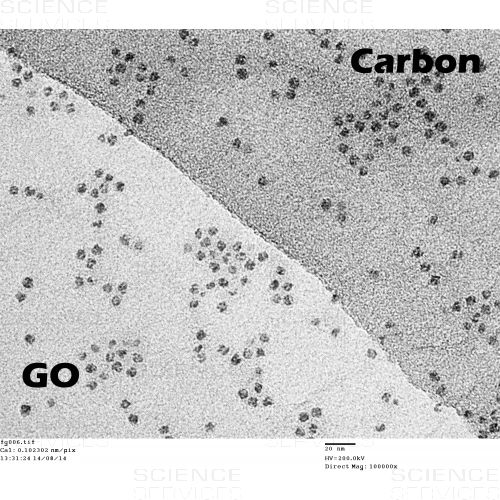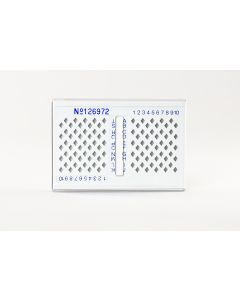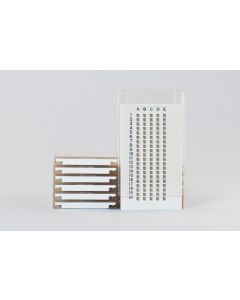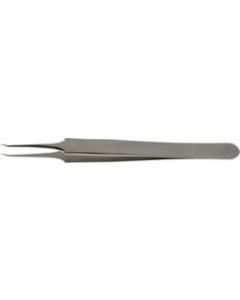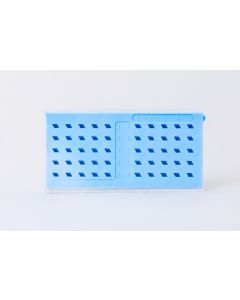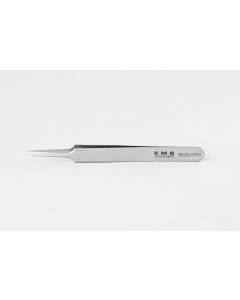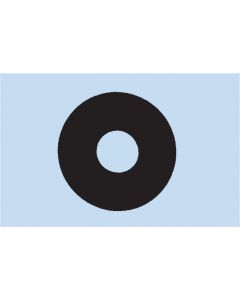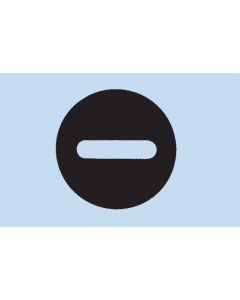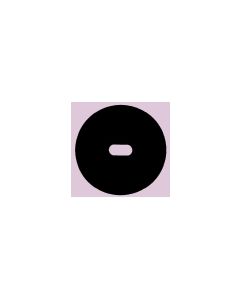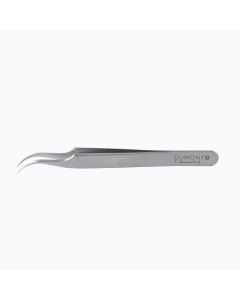TEM Grids, Graphene Oxide on Lacey Carbon, 300 Mesh, squarel, Cu
Product Details
Description
Availability and Customization
GO support films are available from stock on 300 mesh square Holey and Lacey carbon supports and on 200, 300 and 400 mesh Quantifoils (R1.2/1.3, R2/2 and R2/4), all on copper grids.
Other grid types such as Nickel and Gold and other mesh sizes are available on request.
TEM applications for GO
GO membranes are robust, conductive and almost electron transparent when used as support films for TEM. The ultra-low contrast makes them particularly useful for imaging small nanoparticles or nanowires whose structure is not readily resolvable on conventional carbon supports [2].
- Usage for imaging and analysis of polymeric, macromolecular and biological samples. Hydrophilic nature of GO – Attachment of macromolecules.
- Preparation of unstained, vitrified biological macromolecules analyzed by Cryo–TEM [3], providing higher contrast and higher resolution for structural determination.
Technical Information
As thin support film for TEM, Graphene Oxide (GO) offers distinct benefits regarding the background contrast. The low atomic number and thin-layer thickness results in lower background contrast than conventional support films.
GO offers a cost effective alternative to Graphene for routine TEM applications. GO monolayers are typically <1nm and ideal for viewing nanoparticles by TEM when a continuous support film is necessary. GO films are almost transparent under the electron beam and not easily visible under an optical microscope.
Structure and composition of GO
Graphene oxide is composed of a graphene-like sheet randomly decorated with oxygen functional groups such as epoxy and hydroxyl. Due to its graphene-like carbon backbone, GO monolayers are strong enough to span the holes in a Holey, Lacey carbon support or Quantifoil.
GO is synthesized from graphite powder using a modified Hummers’ method. As produced, GO support films are hydrophilic. However, this can readily be changed by heating in air, if a hydrophobic surface is required [1].
GO grid morphology
The GO sheets are distributed across the EM grids such that some holes e.g. in a lacey carbon support are uncovered, some covered by a single monolayer of GO, and some by two or more layers of GO. On average, roughly 50-75% of the lacey carbon holes are spanned by graphene oxide and of those roughly 50% are monolayer.
<< For detailed information see datasheet >>
References
[1] A simple approach to characterizing block copolymer assemblies: graphene oxide supports for high contrast multi-technique imaging Joseph P. Patterson, Ana M. Sanchez, Nikos Petzetakis, Thomas P. Smart, Thomas H. Epps, III, Ian Portman, Neil R. Wilson and Rachel K. O’Reilly. Soft Matter 8, 3322 (2012). http://dx.doi.org/10.1039/C2SM07040E
[2] Graphene Oxide: Structural Analysis and Application as a Highly Transparent Support for Electron Microscopy. N.R. Wilson, P.A. Pandey, R. Beanland, R.J. Young, I.A. Kinloch, L. Gong, Z. Liu, K. Suenaga, J.P. Rourke, S.J. York, and J. Sloan, ACS Nano 3 (9), 2547 (2009). http://dx.doi.org/10.1021/nn900694t
[3] Graphene oxide: a substrate for optimizing preparations of frozen-hydrated samples. Pantelic RS, Meyer JC, Kaiser U, Baumeister W, Plitzko JM. (2010) J Struct Biol. Apr;170(1):152-6.
[4] Pandey, Priyanka A. (2012) Structure and applications of chemically modified graphene. PhD thesis, University of Warwick. http://webcat.warwick.ac.uk/record=b2654517~S1
<< For detailed information see datasheet >>
More Information
| Coating |
Graphene Oxide
|
|---|---|
| Film Thickness | <1nm |
| Material |
Copper
|
| Material Symbol | Cu |
| Mesh Size |
300 Mesh
|
| Mesh Style |
square
|
| Used with |
TEM
|
| Manufacturer |
EM Resolutions
|

